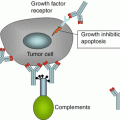86.
Rao H-L, Chen J-W, Li M, et al. Increased intratumoral neutrophil in colorectal carcinomas correlates closely with malignant phenotype and predicts patients’ adverse prognosis. PLoS One. 2012;7:e30806.PubMedCentralPubMed
87.
Algars A, Irjala H, Vaittinen S, et al. Typ and location of tumor-infiltrating macrophages and lymphatic vessels predict survival of colorectal cancer patients. Int J Cancer. 2012;131:864–73.PubMed
88.
Papanikolaou IS, Lazaris AC, Apostolopoulos P, et al. Tissue detection of natural killer cells in colorectal adenocarcinoma. BMC Gastroenterol. 2004;4:20.PubMedCentralPubMed
89.
Nagorsen D, Voigt S, Berg E, et al. Tumor-infiltrating macrophages and dendritic cells in human colorectal cancer: relation to local regulatory T cells, systemic T-cell response against tumor-associated antigens and survival. J Transl Med. 2007;5:62.PubMedCentralPubMed
90.
Koch M, Beckhove P, op den Winkel J, et al. Tumor infiltrating T lymphocytes in colorectal cancer. Tumor-selective activation and cytotoxic activity in situ. Ann Surg. 2006;244:986–93.PubMedCentralPubMed
91.
Naito Y, Saito K, Shiiba K, et al. CD8+ T cells infiltrated within cancer nests as a prognostic factor in human colorectal cancer. Cancer Res. 1998;58:3491–4.PubMed
92.
Pagès F, Berger A, Camus M, et al. Effector memory T cells, early metastasis, and survival in colorectal cancer. N Engl J Med. 2005;353:2654–66.PubMed
93.
Diederichsen AC, Hjelmborg JB, Christensen PB, et al. Prognostic value of the CD4+/CD8+ ratio of tumour infiltrating lymphocytes in colorectal cancer and HLA-DR expression on tumour cells. Cancer Immunol Immunother. 2003;52:423–8.PubMed
94.
Dunn GP, Bruce AT, Ikeda H, et al. Cancer immunoediting: from immunosurveillance to tumor escape. Nat Immunol. 2002;3:991–8.PubMed
95.
Dunn GP, Old LJ, Schreiber RD. The three Es of cancer immunoediting. Ann Rev Immunol. 2004;22:329–60.
96.
Banerjea A, Bustin SA, Dorudi S. The immunogenicity of colorectal cancers with high- degree microsatellite instability. World J Surg Oncol. 2005;3:26.PubMedCentralPubMed
97.
Ropponen KM, Eskelinen MJ, Lipponen PK, et al. Prognostic value of tumour-infiltrating lymphocytes (TILs) in colorectal cancer. J Pathol. 1997;182:318–24.PubMed
98.
Heriot AG, Marriott JB, Cookson S, et al. Reduction in cytokine production in colorectal cancer patients: association with stage and reversal by resection. Br J Cancer. 2000;82:1009–12.PubMedCentralPubMed
99.
Kobayashi M, Kobayashi H, Pollard RB, Suzuki F. A pathogenic role of Th2 cells and their cytokine products on the pulmonary metastasis of murine B16 melanoma. J Immunol. 1998;160:5869–73.PubMed
100.
Tosolini M, Kirilovsky A, Mlecnik B, et al. Clinical impact of different classes of infiltrating T cytotoxic and helper cells (Th1, Th2, Treg, Th17) in patients with colorectal cancer. Cancer Res. 2011;71:1263–71.PubMed
101.
O’Hara RJ, Greenman J, MacDonald AW, et al. Advanced colorectal cancer is associated with impaired interleukin 12 and enhanced interleukin 10 production. Clin Cancer Res. 1998;4:1943–8.PubMed
102.
Pellegrini P, Berghella AM, Del Beato T, et al. Disregulation of Th1 and Th2 subsets of CD4+ T cells in peripheral blood of colorectal cancer patients and involvement in cancer establishment and progression. Cancer Immunol Immunother. 1996;42:1–8.PubMed
103.
Lahm H, Schindel M, Frikart L, et al. Selective suppression of cytokine secretion in whole blood cell cultures of patients with colorectal cancer. Br J Cancer. 1998;78:1018–23.PubMedCentralPubMed
104.
Hawinkels LJAC, Paauwe M, Verspaget HW, et al. Interaction with colon cancer cells hyperactivates TGF-β signaling in cancer-associated fibroblasts. Oncogene. 2014;33(1):97–107.PubMed
105.
Massagué J. The transforming growth factor-beta family. Annu Rev Cell Biol. 1990;6:597–641.PubMed
106.
Mo L, Wan YY, Sanjabi S, et al. Transforming growth factor-beta regulation of immune responses. Annu Rev Immunol. 2006;24:99–146.
107.
Friedman E, Gold LI, Klimstra D, et al. High levels of transforming growth factor beta 1 correlate with disease progression in human colon cancer. Cancer Epidemiol Biomarkers Prev. 1995;4:549–54.PubMed
108.
Narai S, Watanabe M, Hasegawa H, et al. Significance of transforming growth factor β1 as a new tumor marker for colorectal cancer. Int J Cancer. 2002;97:508–11.PubMed
109.
Grady WM, Myeroff LL, Swindler SE, et al. Mutational inactivation of transforming growth factor b receptor type II in microsatellite stable colon cancers. Cancer Res. 1999;59:320–4.PubMed
110.
Yan Z, Deng X, Friedman E. Oncogenic Ki-ras confers a more aggressive colon cancer phenotype through modification of transforming growth factor-β receptor III. J Biol Chem. 2001;276:1555–63.PubMed
111.
Gorelik L, Flavell RA. Transforming growth factor-β in T-cell biology. Nat Rev Immunol. 2002;2:46–53.PubMed
112.
Hsiao YW, Liao KW, Hung SW, Chu RM. Tumor-infiltrating lymphocyte secretion of IL-6 antagonizes tumor-derived TGF-beta 1 and restores the lymphokine-activated killing activity. J Immunol. 2004;172:1508–14.PubMed
113.
Bogdan C, Paik J, Vodovotz Y, Nathan C. Contrasting mechanisms for suppression of macrophage cytokine release by transforming growth factor-beta and interleukin-10. J Biol Chem. 1992;267:23301–8.PubMed
114.
Mapara MY, Sykes M. Tolerance and cancer: mechanisms of tumor evasion and strategies for breaking tolerance. J Clin Oncol. 2004;22:1136–51.PubMed
115.
Gastl GA, Abrams JS, Nanus DM, et al. Interleukin-10 production by human carcinoma cell lines and its relationship to interleukin-6 expression. Int J Cancer. 1993;55:96–101.PubMed
116.
Kucharzik T, Lügering N, Winde G, et al. Colon carcinoma cell line stimulate monocytes and lamina propria mononuclear cells to produce IL-10. Clin Exp Immunol. 1997;110:296–302.PubMedCentralPubMed
Stay updated, free articles. Join our Telegram channel

Full access? Get Clinical Tree




